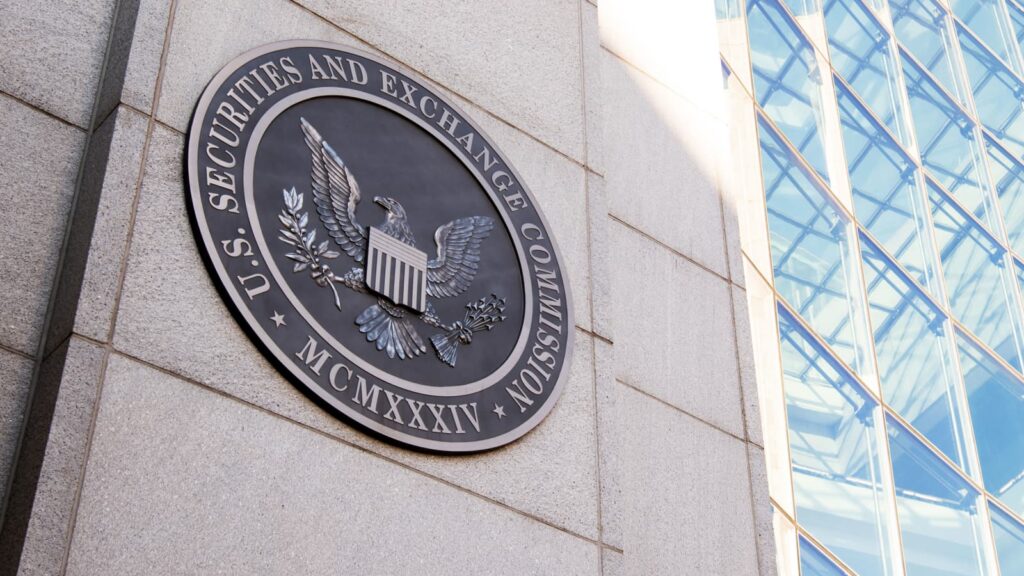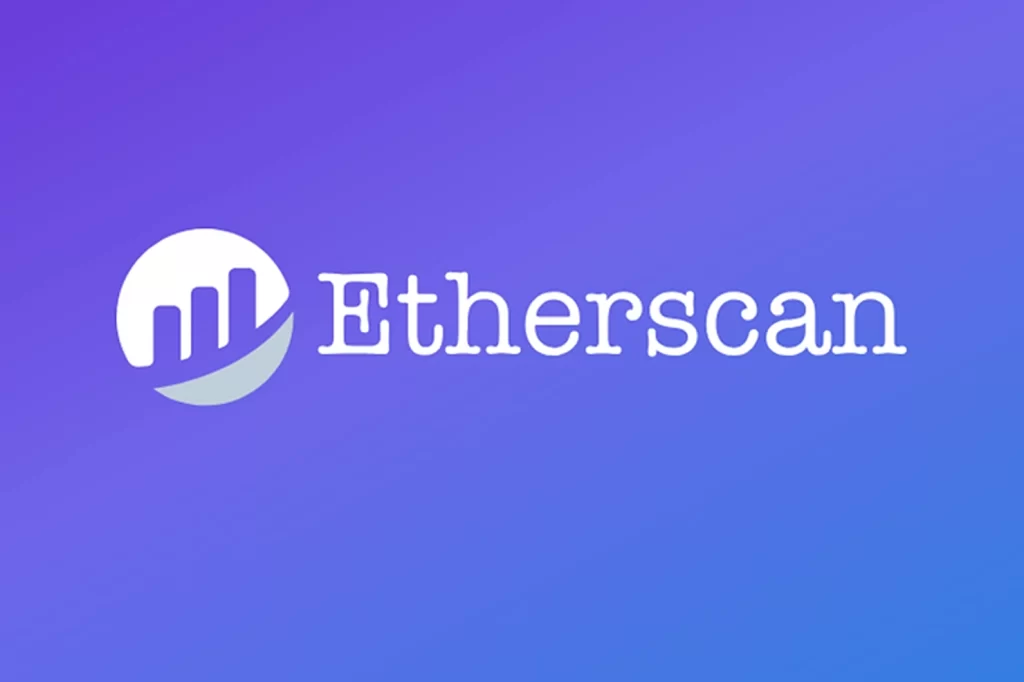Speculation regarding the approval of a Bitcoin exchange-traded fund (ETF) by the SEC has surged on social media, with anticipation mounting for a potential announcement on Friday.
Fueling these expectations, a tweet from Grayscale’s legal chief mentioning that he was “just filling out some forms,” along with a widely shared tweet from a reporter, has intensified the speculation of an imminent approval.
While some analysts foresee the possibility of approvals as soon as the next day, others suggest that we might have to wait until the following week.
TechCrunch reporter Jacquelyn Melinek, in a January 4th post on X (formerly Twitter), cited sources “extremely close to the matter” and indicated that she was “expecting something tomorrow,” hinting at the potential approval of multiple ETFs.
One tweet that has caught the attention of many is from Grayscale’s chief legal officer, who cryptically mentioned that he was “just filling out some forms.”
This tweet has garnered significant attention with 1.9 million views and 6,700 likes since its posting.
Social media is buzzing with the hashtag #BTCETF and discussions around “Bitcoin ETFs,” while the price of Bitcoin has also experienced an uptick of 3.4% in the last 24 hours, following a sharp drop on January 3rd, according to TradingView data.
READ MORE: South Korea Proposes Ban on Credit Card Purchases of Cryptocurrency to Combat Money Laundering
However, not everyone is convinced of an immediate approval. Trader Scott Melkor acknowledges the vigorous rumor mill but remains cautious.
Bloomberg ETF analyst James Seyffart views much of the January 5th approval speculation as noise and anticipates approval to arrive between January 8th and 10th.
Attorney Joe Carlasare points out that the public comment period for several ETF applications extends until midnight on January 5th, making it “very unlikely” for approval to occur before the start of the next week in his view.
Eric Balchunas, senior Bloomberg ETF analyst, reveals that the SEC is in the process of providing final comments, and issuers are expected to file their final 19b-4 and S-1 forms soon.
Both forms must gain SEC approval before the ETF can commence trading, with the 19b-4 form being particularly crucial for the spot Bitcoin ETF’s effective approval.
Scott Johnsson, general partner at VB Capital, remains skeptical about an ETF approval before the next week, unless all 19b-4 applications are already clear and the SEC is open to simultaneous approvals.
Currently, 14 issuers are competing for the approval of a Bitcoin ETF, including BlackRock, Valkyrie, ARK Invest/21 Shares, Bitwise, and Fidelity.
Investors and enthusiasts alike eagerly await the SEC’s decision, which could have a significant impact on the cryptocurrency market.
Spain’s central bank, Banco de España, has recently announced its selection of collaborators for its central bank digital currency (CBDC) experiments, following an open call for partners issued a year ago.
On January 3rd, Banco de España revealed its partnership with three key players: Cecabank, Abanca, and Adhara Blockchain.
Over the next six months, these partners will engage in a pilot program to test the wholesale CBDC, which will include simulating the processing and settlement of interbank payments using a tokenized wholesale CBDC.
Additionally, they will explore exchanging various wholesale CBDCs issued by different central banks.
Part of this experimental journey will involve utilizing the wholesale CBDC to settle a simulated tokenized bond, a significant step in the development and application of CBDC technology.
From the 24 applications received by Banco de España over the past year, these three companies were selected as collaborators.
READ MORE: South Korea Proposes Ban on Credit Card Purchases of Cryptocurrency to Combat Money Laundering
Notably, while Cecabank and Abanca are Spanish entities, Adhara Blockchain is headquartered in the United Kingdom, showcasing the international interest in CBDC development.
It’s worth highlighting that Spain’s CBDC program is distinct in that it operates independently from the digital euro project, which would encompass all eurozone economies if implemented.
Meanwhile, the Spanish Ministry of Economic Affairs and Digital Transformation has committed to implementing the European Union’s Markets in Crypto-Assets Regulation six months ahead of the deadline, underlining the nation’s proactive stance in regulating the crypto sector.
In a move to educate the public about the digital euro, the Bank of Spain had previously published materials explaining its nature and potential applications.
Despite these efforts, a survey conducted in October revealed that the majority of Spaniards, approximately 65% of respondents, showed little interest in using the digital euro alongside their regular payment methods.
This indicates that while the central bank is advancing in CBDC experimentation, widespread adoption may still face some hurdles in the Spanish market.
Tuttle Capital Management, an Exchange-traded fund (ETF) issuer, has taken a bold step by filing for six leveraged and inverse Bitcoin ETFs with the United States Securities and Exchange Commission (SEC).
These filings aim to provide investors with the opportunity to benefit from amplified returns in the world of Bitcoin, even before the approval of a traditional spot Bitcoin ETF.
On January 3rd, Tuttle submitted three N1-A forms to the SEC.
These forms are typically used by investment companies to create new open-ended mutual funds.
Bloomberg Intelligence ETF analyst Henry Jim shared the news on X (formerly Twitter) and revealed an effective date of March 18, 2024.
This move showcases Tuttle’s eagerness to capitalize on the growing interest in cryptocurrency investments.
Fellow Bloomberg ETF analyst James Seyffart echoed this sentiment by highlighting Tuttle’s proactive approach, as they have already filed for six leveraged Bitcoin ETFs, despite the absence of an approved spot ETF.
This demonstrates their commitment to innovation in the ETF space.
READ MORE: Spot Bitcoin ETF Transparency Becomes Key Competitive Factor in Race for Approval
The six proposed Bitcoin ETFs include T-REX 1.5X, 1.75X, and 2X Long Spot Bitcoin Daily Target ETFs, along with T-REX 1.5X, 1.75X, and 2X Inverse Spot Bitcoin Daily Target ETFs.
These funds aim to deliver daily results with leveraged or inverse strategies, offering potential returns of up to 150% (for the 1.5X product) and 200% (for the 2X product).
Tuttle plans to initially use BlackRock’s prospective iShares spot Bitcoin ETF as the reference asset for swap agreements, though they may consider changing this reference asset in the future.
It’s important to note that these ETFs come with higher risk compared to non-leveraged alternatives because they magnify the performance of the underlying security, which in this case is Bitcoin, known for its price volatility.
Tuttle has not yet disclosed the proposed ticker symbols or set management fees for these ETFs. Further inquiries have been made to Tuttle for additional information.
Currently, Tuttle manages seven listed ETFs with a total of $96 million in assets, as per data from Stock Analysis. Among their existing products are the T-REX 2X Long Tesla Daily Target ETF (TSLT) and the T-REX 2X Long NVIDIA Daily Target ETF (NVDX).
The addition of leveraged and inverse Bitcoin ETFs to their portfolio reflects their commitment to diversifying investment options and addressing the evolving needs of investors in the cryptocurrency space.
Bitcoin’s sudden drop of $4,000 within hours is not solely due to panic surrounding the United States regulators’ potential rejection of a spot exchange-traded fund (ETF), according to prominent commentators.
This flash crash led to liquidations of over half a billion dollars in cryptocurrency positions.
The decline in Bitcoin’s price, nearly 9% of its value, coincided with the cryptocurrency’s 15th anniversary on January 3, as reported by Cointelegraph Markets Pro and TradingView.
CoinGlass, a statistics resource, reported long liquidations amounting to $514 million on the same day.
Matrixport, a crypto financial services platform, released a report asserting that the U.S. Securities and Exchange Commission (SEC) is likely to reject the spot ETF.
The report claimed that an ETF approval would catalyze crypto adoption, but the SEC chairman, Gensler, expressed the need for stricter compliance in the industry, implying that there is no political incentive to legitimize Bitcoin as an alternative store of value through a spot ETF.
READ MORE: Global Bitcoin ATM Count Falls by 11.1% in 2023, Breaking 10-Year Growth Streak
However, the report lacked concrete evidence to support its claim, and the official window for the SEC’s decision on the ETF is set from January 4 to January 10.
Some market experts, including trader and podcast host Scott Melker, questioned the rationale behind Matrixport’s perspective.
Others argued that the liquidations observed during the price drop were typical of Bitcoin’s behavior in a bull market.
Joe Carlasare, a crypto-focused litigator, dismissed the idea that the ETF report triggered the sell-off, attributing it instead to the market being overbought and in need of a liquidity squeeze.
Matrixport, anticipating a possible rejection by the SEC, predicted only a modest further decline in Bitcoin’s price.
If the SEC denies approval, the report anticipates cascading liquidations, potentially causing a rapid 20% decrease in Bitcoin’s value, bringing it back to the $36,000-$38,000 range.
As previously reported by Cointelegraph, analysts had already identified the mid-to-low $30,000 range as a likely support level for Bitcoin’s price.
The Chicago Board Options Exchange (CBOE), America’s largest options exchange, anticipates that spot Bitcoin exchange-traded funds (ETFs) will usher in a fresh wave of institutional investors.
In a recent interview on Bloomberg TV, CBOE Digital President John Palmer articulated that the approval of such ETFs would not only facilitate greater institutional participation but also stimulate retail interest in Bitcoin derivatives.
Palmer emphasized that this approval could potentially pave the way for pension funds and RIA-based (Registered Investment Advisor) funds to directly invest in spot Bitcoin ETF assets.
Currently, many of these funds face limitations in gaining direct exposure to Bitcoin. He further explained that RIAs are entities registered with federal or state regulatory agencies, specializing in offering investment advice.
As the deadline for the Securities and Exchange Commission (SEC) to decide on the ARK Invest 21 Shares Bitcoin ETF application approaches on January 10, Palmer believes that if approved, Bitcoin derivative products will experience significant expansion.
Institutional players are expected to increasingly utilize these derivatives for risk management purposes.
Palmer acknowledged the difficulty in predicting the exact breakdown of investors but noted that institutions are at the forefront of accessing hedging tools.
READ MORE: Bitcoin Price Prediction: AI Suggests Potential $100,000 Milestone by 2024
Nevertheless, he expects retail investors to also show interest in these instruments.
CBOE Digital, the cryptocurrency division of the exchange, currently offers crypto futures and options trading.
On January 11, it plans to launch margined Bitcoin and Ether derivatives trading, allowing investors to trade these contracts without the requirement of providing the full collateral.
Simultaneously, some mutual funds are already strategizing to increase their exposure to spot Bitcoin ETFs upon approval.
On January 2, Advisors Preferred Trust, a mutual fund manager, modified its prospectus to allow the fund to invest up to 15% of its total assets indirectly in Bitcoin.
This exposure would be achieved through investments in shares of Grayscale Bitcoin Trust, ProShares Bitcoin Strategy ETF, and Bitcoin futures contracts.
In conclusion, the potential approval of spot Bitcoin ETFs is poised to reshape the landscape of institutional and retail investments in cryptocurrencies, providing greater accessibility and hedging opportunities for a broader range of investors.
Etherscan, a renowned explorer for the Ethereum blockchain, is commencing the year with a notable move into the Solana blockchain domain.
On January 3rd, Etherscan officially revealed its acquisition of Solscan, a prominent block explorer for the Solana ecosystem.
This strategic acquisition is being described as a “collaborative merging” and marks another step in Etherscan’s ongoing mission to broaden its blockchain data services across various networks.
Solscan, established in 2021, has reportedly catered to more than three million monthly users and boasts a community of over 23,000 subscribers on the X platform (formerly Twitter).
The Solscan block explorer offers a range of features that will be familiar to Etherscan users, including in-depth information on addresses, tokens, transactions, APIs, dashboards, and metadata related to nonfungible tokens (NFTs).
Etherscan has committed to preserving “credibly neutral and equitable access to blockchain data” following this acquisition, with plans to enhance support and integrate new features across different explorers.
Matthew Tan, CEO and co-founder of Etherscan, expressed confidence in the Solscan team, highlighting their expertise in providing comprehensive insights and user-friendly access to blockchain data, aligning perfectly with Etherscan’s mission.
READ MORE: Bitcoin Surges Above $45,000 Amid Anticipation of Spot ETF Approval
This acquisition coincides with a remarkable surge in the price of Solana, the native cryptocurrency of the Solana blockchain.
On December 22nd, Solana briefly surpassed Binance Chain’s BNB in market capitalization, following its earlier accomplishment of overtaking XRP’s market value.
The token has experienced a 60% rally in the past month, surpassing the $100 mark in late 2023 for the first time since 2022.
As of the latest data from CoinGecko, Solana (SOL) is currently trading at $110, reflecting a 3.5% decrease over the past 24 hours.
It has solidified its position as the fifth-largest cryptocurrency by market capitalization, with a valuation of nearly $47 billion.
Some industry observers have speculated about the potential for SOL to eventually surpass Ethereum. Solana briefly outpaced Ethereum in terms of daily decentralized exchange (DEX) trading volumes in late December.
Furthermore, Solana’s Google search interest outstripped Ethereum’s, scoring 56 compared to Ethereum’s 50 in late December.
These developments underscore the growing prominence of Solana in the blockchain and cryptocurrency landscape.
South Korea’s top financial regulator is taking steps to amend the country’s credit finance laws with the intention of prohibiting local residents from using credit cards to purchase cryptocurrencies.
This move comes as the Financial Services Commission (FSC) of South Korea expresses concerns regarding the potential risks associated with South Korean citizens acquiring cryptocurrencies from foreign exchanges.
In a legislative notice issued on January 3rd, the FSC highlighted its apprehensions regarding illegal fund outflows and money laundering, which could potentially be facilitated by individuals buying cryptocurrencies from foreign platforms using credit cards.
The FSC stated, “Concerns have been raised about illegal outflow of domestic funds overseas due to card payments on overseas virtual asset exchanges, money laundering, speculation, and encouragement of speculative activities.”
Consequently, the FSC is proposing to classify virtual assets as prohibited for payment through credit cards.
READ MORE: Rising Tide of Crypto Phishing Scams Costs Users $295 Million in 2023
Currently, local cryptocurrency exchanges in South Korea strictly enforce regulations that allow transactions involving virtual assets only through deposit and withdrawal accounts, where users’ identities can be verified.
However, these stringent rules do not apply to foreign cryptocurrency exchanges, leaving room for potential misuse.
To gather input and feedback from the public regarding this proposed change, the financial services regulator has initiated a public consultation period, which is slated to run until February 13th.
After the consultation phase, the proposal is expected to undergo a thorough review and resolution process, with the ultimate goal of implementing the new regulations in the first half of 2024.
The FSC’s decision reflects South Korea’s ongoing efforts to regulate and monitor the cryptocurrency market within its borders to mitigate the risks of illicit activities such as money laundering and speculative trading.
By prohibiting credit card transactions for cryptocurrencies, the government aims to enhance financial security and ensure that virtual assets are used in a responsible and legal manner.
This move aligns with a broader global trend of governments and regulatory bodies tightening oversight of the cryptocurrency sector to safeguard their financial systems and curb potential criminal activities.
Amidst the growing anticipation and skepticism surrounding the potential approval of the first spot Bitcoin exchange-traded fund (ETF) in the United States, notable Bitcoin critic and advocate for gold, Peter Schiff, has issued a cautionary warning to Bitcoin enthusiasts.
In a tweet posted on the social media platform X (formerly Twitter), Schiff expressed concerns about the potential catastrophic impact of spot Bitcoin ETFs on the price of BTC.
He argued that the mere prospect of a U.S.-listed spot Bitcoin ETF has bolstered the price of Bitcoin and speculative demand for years.
Schiff’s contention is that if the expected institutional demand for Bitcoin doesn’t materialize following ETF approval, it could lead to a significant decline in BTC’s price.
Schiff has maintained his skepticism towards Bitcoin for an extended period, consistently predicting its downfall, although his predictions have been proven wrong in each market cycle.
His tweet drew responses from Bitcoin proponents who countered his argument by likening the potential ETF’s impact to that of a gold ETF on the demand for physical gold.
Despite the ongoing debate, those eagerly awaiting the launch of the first spot Bitcoin ETF in the U.S. may face further delays.
A data-focused consultancy firm, Matrixpoint, predicts that the Securities and Exchange Commission (SEC) is likely to reject all spot Bitcoin ETF applications before the final deadline of January 10.
READ MORE: Bitcoin Surges Above $45,000 Amid Anticipation of Spot ETF Approval
Matrixpoint’s forecast diverges from the consensus among many ETF analysts, who previously estimated a 90% likelihood of approval before the January 10 deadline.
Matrixpoint claims that all the applications submitted to the SEC fall short of a crucial requirement that must be met for approval.
Consequently, the firm anticipates that the first spot Bitcoin ETF may not receive approval until the second quarter of 2024.
Matrixpoint’s analysis factors in the current composition of the SEC’s leadership, where Democrats hold a majority among the five voting commissioners.
This political dynamic makes it less probable that any of the commissioners, including SEC chief Gary Gensler, would vote in favor of a spot Bitcoin ETF.
Contrary to earlier reports citing unnamed sources that predicted approval by January 2, the SEC has yet to make a decision as the January 10 deadline approaches.
This uncertainty has led to a shift in market sentiment from optimism to skepticism, evident in the weakness of crypto mining stocks and the sell-off of various crypto-related U.S. stocks.
Even Bloomberg ETF analyst Eric Balchunas, who initially believed there was a 99% chance of approval in the first quarter of 2024, now acknowledges a slim possibility that the SEC could reject the applications, describing it as the “rug pull of a decade.”
MicroStrategy’s Executive Chairman, Michael Saylor, has initiated a four-month process to sell $216 million worth of his shares in the company, with a portion earmarked for increasing his Bitcoin holdings.
This move was disclosed in a filing with the United States Securities and Exchange Commission (SEC) on January 2nd, where Saylor revealed that he had commenced the sale of his 315,000 stock options awards, originally granted to him in April 2014.
These stock options are set to expire on April 30, 2024.
As per the filing, Saylor began the sell-off on January 2nd, liquidating his first tranche of 5,000 shares.
This sale aligns with his announcement during MicroStrategy’s third-quarter earnings call on November 2nd, where he outlined his intention to sell 5,000 MSTR shares daily for the next four months.
The proceeds from these sales are intended to address “personal obligations” and bolster Saylor’s personal Bitcoin holdings.
Saylor expressed his rationale for the sale during the earnings call, stating that exercising this option would enable him to fulfill personal obligations and acquire more Bitcoin for his personal account.
READ MORE: Bitcoin Price Prediction: AI Suggests Potential $100,000 Milestone by 2024
He emphasized that his stake in the company’s equity remains “significant” despite these personal sales.
It’s worth noting that according to a November 1st Q-10 filing with the SEC, Saylor has the capacity to sell a maximum of 400,000 shares of his vested options between January 2nd and April 26th of the current year.
While Bitcoin experienced a remarkable 170% rally over the preceding year, MicroStrategy’s performance has eclipsed that of the cryptocurrency, boasting a staggering 411% gain during the same period, based on TradingView data.
In a significant move, on December 27th, MicroStrategy made a substantial purchase of 14,620 Bitcoins for $615 million, further expanding its already substantial Bitcoin holdings.
This acquisition brought MicroStrategy’s total Bitcoin stash to an impressive 189,150 Bitcoins, valued at approximately $8.5 billion at prevailing market prices.
Saylor’s ongoing share sales, coupled with MicroStrategy’s unwavering Bitcoin accumulation, underscore the company’s commitment to cryptocurrency as a core part of its corporate strategy.
As of January 1, 2024, the global count of Bitcoin ATMs stands at 33,628, marking an 11.1% decrease from the previous year, defying a decade-long trend of annual growth in these cryptocurrency dispensing machines.
Coin ATM Radar, a reputable source for tracking such data, reported that on January 1, 2023, there were 37,827 Bitcoin ATMs worldwide.
While 2023 saw fluctuations in these numbers, the overall trend was downward, resulting in the reduced count by year-end.
Since October 2013, Coin ATM Radar has continuously monitored the installation of crypto ATMs.
The numbers consistently rose each month, peaking at an all-time high of 39,376 in August 2022.
However, this growth started to wane thereafter, especially throughout the year 2023.
The most significant decline in crypto ATMs was observed in the United States, where the count fell by 15.4% from 32,672 to 27,631, although it still accounts for 82% of all crypto ATMs globally.
Conversely, countries like Australia, Canada, Spain, and Poland steadily increased their crypto ATM counts.
A contributing factor to the overall decline was the crypto ATM manufacturer BitAccess, which experienced a 26% reduction in installations, dropping from 9,160 in August 2022 to 6,774 on January 1, 2024.
In contrast, manufacturers like General Bytes and Genesis Coin continued to add Bitcoin ATMs throughout the year.
READ MORE: US Department of Justice’s Decision on SBF’s Second Trial Sparks Crypto Community Controversy
Bitcoin Depot, a prominent player in the crypto ATM industry, made significant strides in 2023.
The company went public on the Nasdaq on July 3 and expanded its operations to its 28th U.S. state.
In addition, it reported a Q3 2023 revenue of $179.5 million, indicating a 3% year-on-year increase in earnings.
According to Coin ATM Radar, there are 498 crypto ATM operators spanning 71 countries.
Bitcoin remains the dominant cryptocurrency supported by these ATMs, although they also facilitate the purchase of other cryptocurrencies such as Bitcoin Cash, Ether, and Litecoin.
In summary, the global count of Bitcoin ATMs experienced an unusual decline in 2023, contrasting with the preceding decade of growth.
The United States, despite losing a substantial number of crypto ATMs, still maintains its position as the leader in this sector.
While some manufacturers faced setbacks, others continued to expand their presence, and notable players like Bitcoin Depot demonstrated growth and financial success in the industry.











